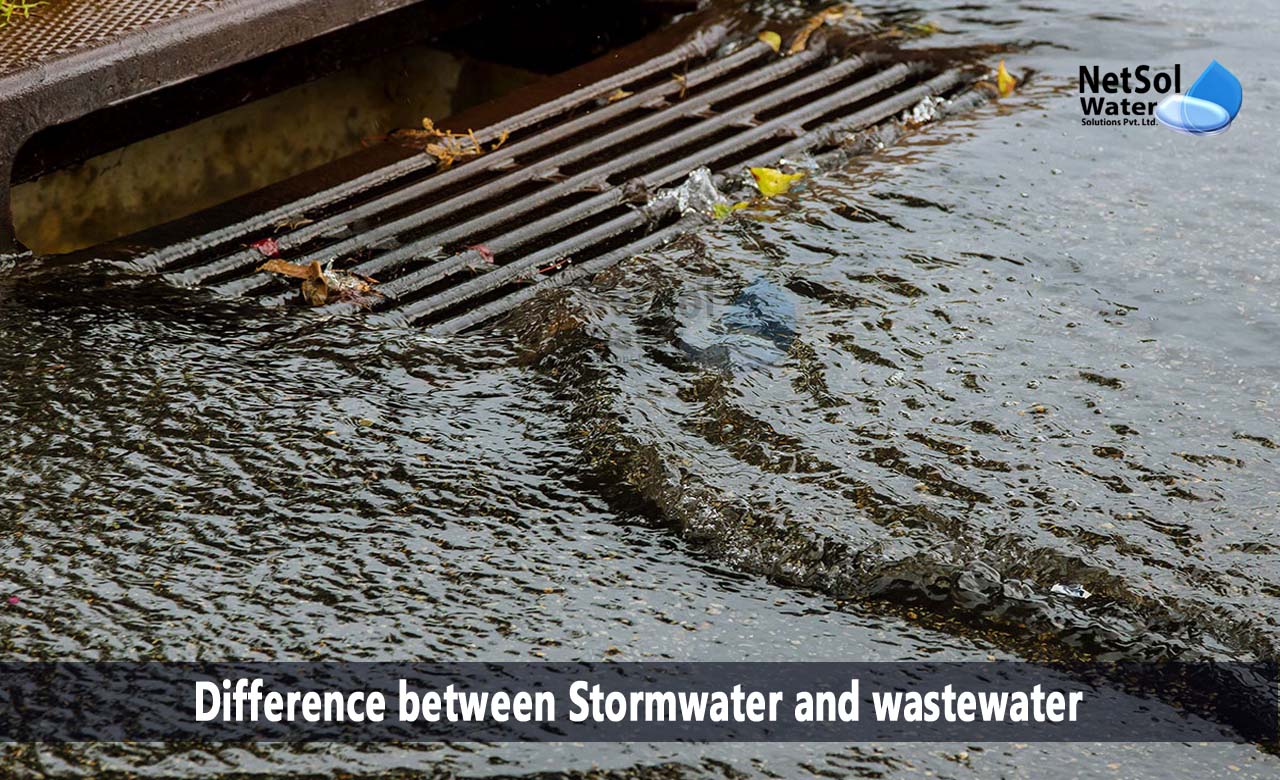The fundamental distinctions between wastewater and stormwater are undoubtedly clear to you. It can be more challenging to comprehend the variations in how they are handled, in a town or city environment.
Stormwater may eventually reach a water treatment facility, but not in the way you may think—through the sewer. The treatment of wastewater varies. It is not intended to enter water bodies without first being cleaned.
Let’s understand the difference between the Stormwater and the wastewater.
What is wastewater?
Wastewater is the liquid that is produced when appliances that handle dirty water are used, such as showers, washing machines, sinks, toilets, bathtubs, dishwashers, and more. Pipes carry that water to a septic tank or sewer.
A wastewater filter, if used with a septic tank, prevents particles from entering the pipes and clogging the pipes leading to the leach field. Before entering underground water sources, the water that is directed to the leach field undergoes natural filtration through the soil, sand, and bedroom.
The residual solids and sludge must be pumped out of the tank, and transported to a facility every three to five years, depending on the population.
What is stormwater?
Rain, snowmelt, and ice melt that occurs after a storm or on a warm day in the winter, or spring is referred to as stormwater. That water is often absorbed back into the ground in a rural or forested location. Pavement and concrete in urban areas keep water from penetrating the soil. Storm drains, ditches, and pipes assist manage the water, since it needs to go somewhere.
People think that everything goes into a sewer when they see storm drains in a metropolis. In actuality, there are many systems in place to manage rainfall and sewage. The water you observe overflowing into a storm drain after a storm, or an unexpected snowfall or ice melt goes into a drainage system that returns that untreated water to rivers, lakes and etc.
The fact that untreated water hasn't been cleaned is one of the issues, with it entering a body of water. That water may wind up in the water after picking up pollutants including road salt, auto fluids, debris, agricultural fertilisers, and pesticides.
What is the Difference between Stormwater and wastewater?
|
Wastewater |
Stormwater |
|
Begins with water leaving your house |
Begins as rainwater falling during a storm |
|
Water is removed from your home through underground pipe systems, as it exits your toilets, sinks, or showers |
Rain that falls on the ground becomes runoff when it cannot be effectively absorbed |
|
The items you flush down the sink are carried by the wastewater, as it exits your house (often unsustainable items, too) |
Runoff gathers up pollutants like oil, garbage, or other substances left on the street, when it runs around man-made structures |
|
At a wastewater treatment plant, wastewater will be handled |
Runoff will eventually go into a storm drain, without being cleaned up |
|
The nearest lake, river, ocean, or retention pond will subsequently receive the effluent, after it has passed through the wastewater system |
Stormwater will then enter the closest lake, river, ocean, or retention pond, after passing through the stormwater system |
How can we assist?
Netsol Water is a prominent and well-known producer, and supplier of Sewage Treatment Plants.
Additionally, we provide our clients with information on how to prevent water pollution, by using a long-term strategy and cutting-edge wastewater treatment techniques.
Netsol Water is Greater Noida-based leading water & wastewater treatment plant manufacturer. We are industry's most demanding company based on client review and work quality. We are known as best commercial RO plant manufacturers, industrial RO plant manufacturer, sewage treatment plant manufacturer, Water Softener Plant Manufacturers and effluent treatment plant manufacturers. Apart from this 24x7 customer support is our USP. Call on +91-9650608473, or write us at enquiry@netsolwater.com for any support, inquiry or product-purchase related query.



